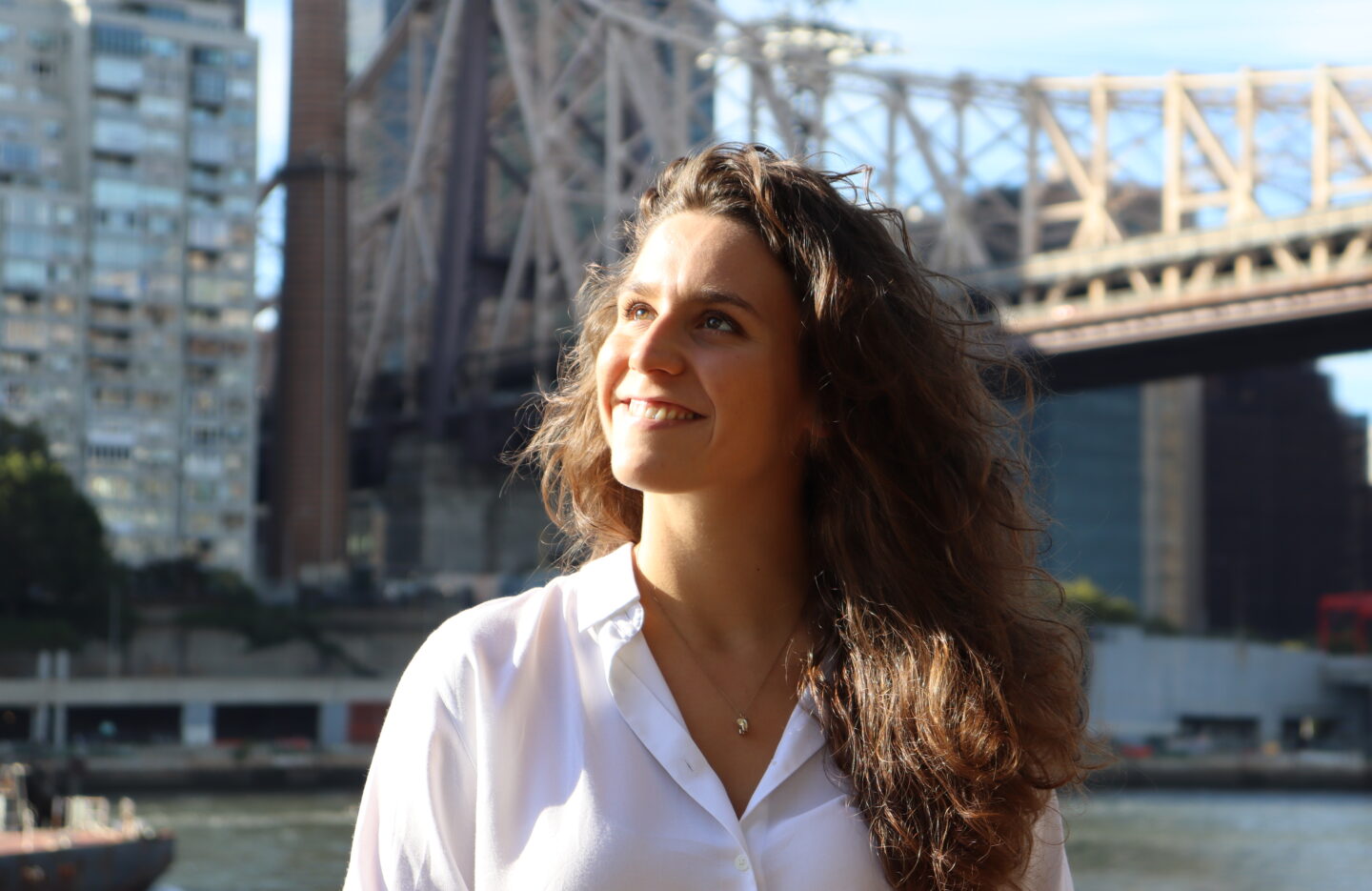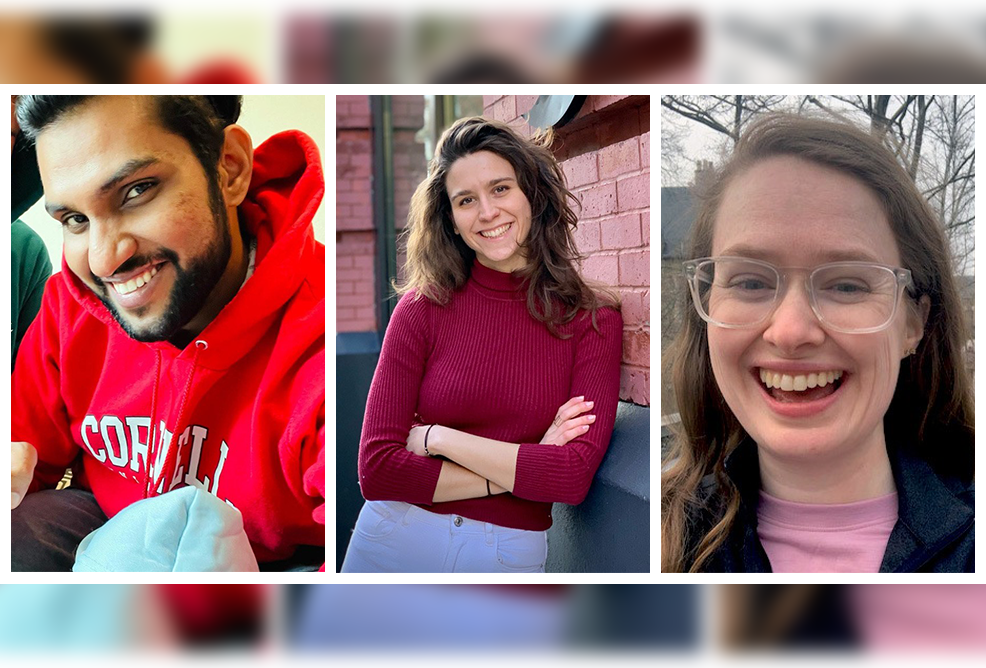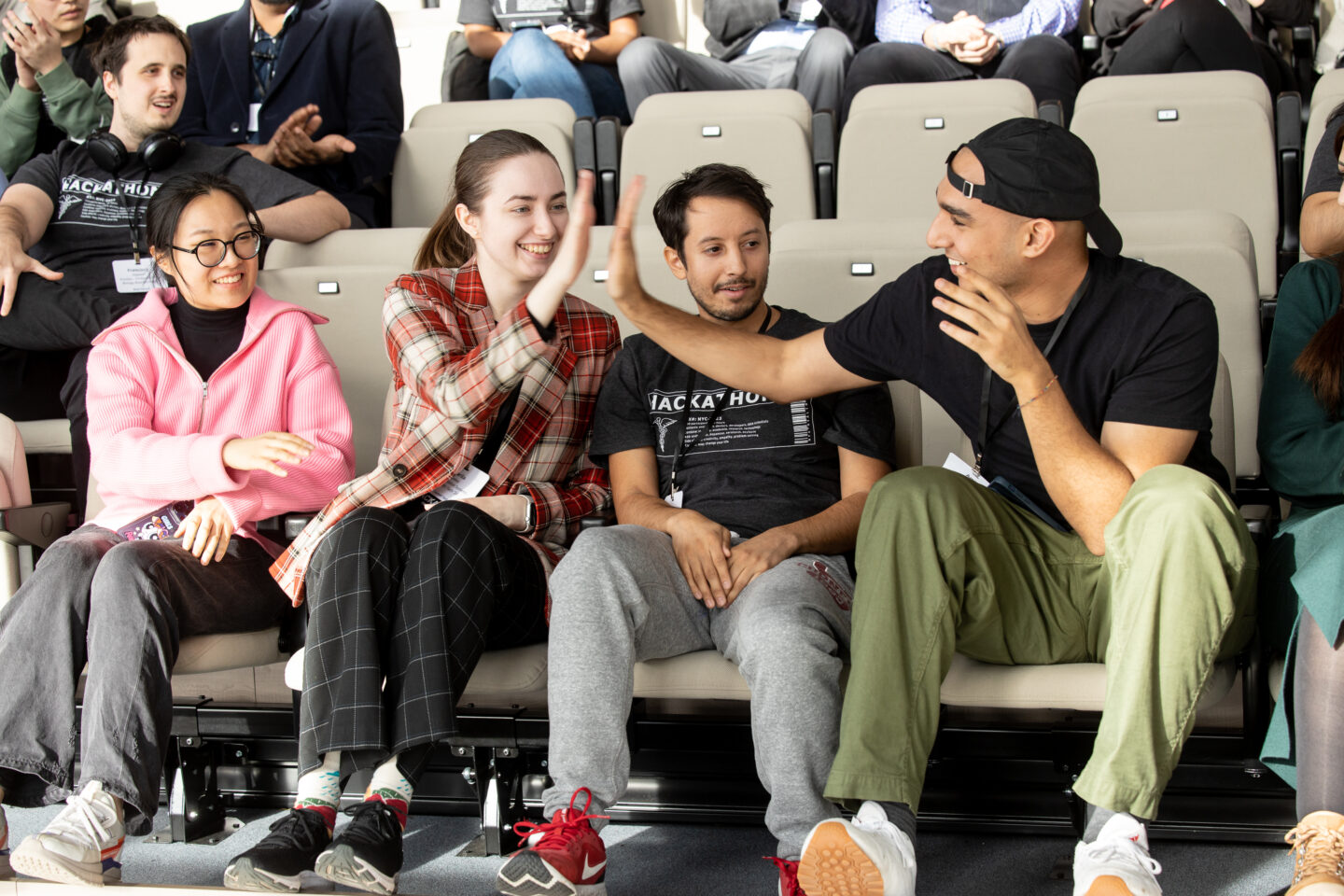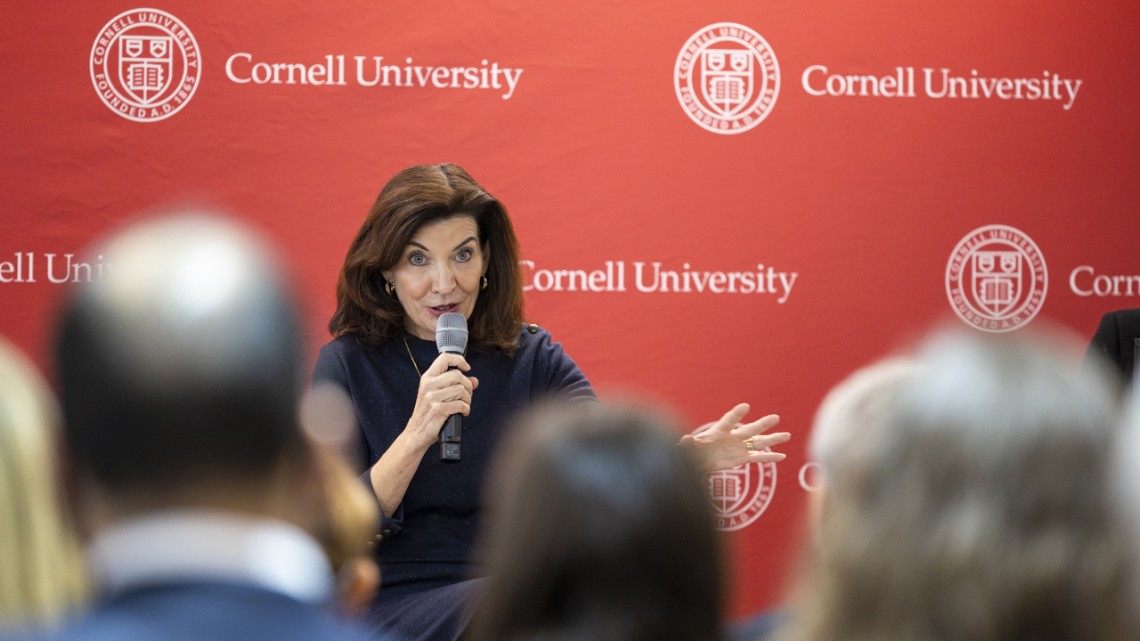Master’s Q&A: Irene Font Peradejordi, Connective Media ’21
Categories

Irene Font Peradejordi, Jacobs Technion-Cornell Dual Master of Science Degrees with a Concentration in Connective Media ‘21, graduated in Communications, Design, and Media from Pompeu Fabra University in Barcelona — her hometown. While participating in an exchange program at Boston College she interned at an MIT Media Lab startup in Cambridge, MA, and eventually co-founded Saturdays.AI, a community-driven movement aimed to make AI education accessible to everyone. Prior to coming to Cornell Tech, she earned an MS in Cognitive Science and Artificial Intelligence from Tilburg University, The Netherlands.
What is your favorite class this semester?
It is hard to say! I am in my last semester at Cornell Tech and there are still too many courses I would like to explore. However, Technology, Media, and Democracy is exceptionally good. The course is a collaboration between NYU, Columbia, CUNY, The New School, and Cornell Tech to examine the socio-technical aspects of our information ecosystem and its challenges in monitoring media platforms, providing high-quality and trustworthy information, and enabling a healthy public sphere. So far, we have had amazing speaker guests like Roger McNamee (Mark Zuckerberg’s mentor and an early investor on Facebook), Julia Angwin (Editor-in-Chief of The Markup and former ProPublica journalist), and Katherine Maher (the CEO of Wikimedia Foundation).
Another class I am thrilled about is Core Leadership Skills for a VUCA (volatile, uncertain, complex, and ambiguous) World taught by General George Casey, the 36th Chief of Staff of the United States Army, now retired. Listening to his career journey while extracting life-long leadership skills is priceless.
What excites you most about your program?
My peers coming from all around the world! Norway, South Africa, Mexico, China, Japan, The Netherlands, Colombia, and more. Think about a room with people from a hundred different educational, cultural, and socioeconomic backgrounds discussing how to solve the most pressing issues technology is challenging humanity with. Collaboration in a highly diverse environment is probably the most critical skill to learn in today’s world.
Why did you choose Cornell Tech?
Cornell Tech is home to multidisciplinary people and this is precisely why I feel I belong. I think my career path has been everything except linear, and I believe this is the result of a decision-making process motivated by deep curiosities and inner motivations. Non-linear career paths, as well as non-linear algorithms, are more complex and uncertain but they can also have a much bigger expressive power.
What has surprised you most about Cornell Tech?
Its startup ecosystem. Cornell Tech is not only home to numerous successful tech startups (and growing!), but the campus feels like a startup itself. Although Cornell Tech is part of an Ivy League school, the Tech campus is still in its early stages and it is great to be able to shape what I believe will be the best startup hub in NYC!
What’s the most interesting use of technology you’ve seen lately?
I recently saw a very interesting computer vision application to help people with visual impairments to follow sports — in this case, tennis — in real-time using auditory clues (3D sound design). Check it out!
What is one of your favorite things to do on the weekend in NYC?
Take the Tramway from Roosevelt Island to Manhattan, walk to 5th Avenue and 59th Street and run Central Park up until the Reservoir. Then, on the way back home, pick up a Magnolia Bakery banana pudding or some chocolate chip walnut cookies from Levain Bakery. And I can not forget to mention the famous fried Oreos from Ray’s Candy Store.
In what way do you hope your work might affect others and society at large?
I hope my work helps to identify and address real human needs and uphold human values to design for augmentation, not automation. I believe we have entered into the age of automation extremely confident and hopeful yet naively underprepared. If we fail to design ethical and inclusive AI, we risk losing the gains made in civil rights and gender and racial equity.
How do you describe your program to your friends and family?
I like to say it is a two-year program in which we take as many computer science courses as the students under the one-year CS program, plus other courses that focus on the psychological and sociological aspects of technology.
Media Highlights
Tech Policy Press
Content Moderation, Encryption, and the LawRELATED STORIES

Knitting Machine Makes Solid 3D Objects




